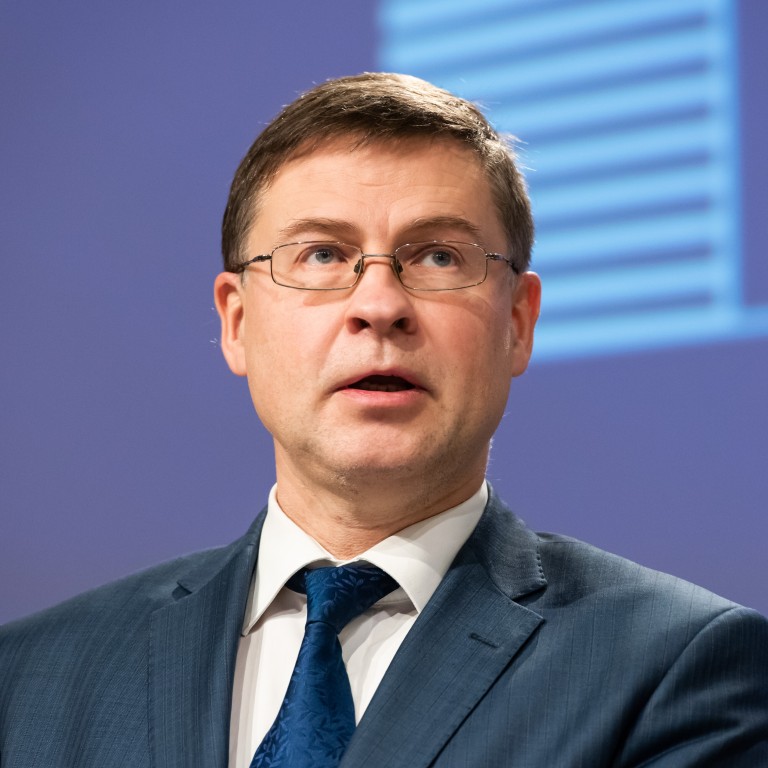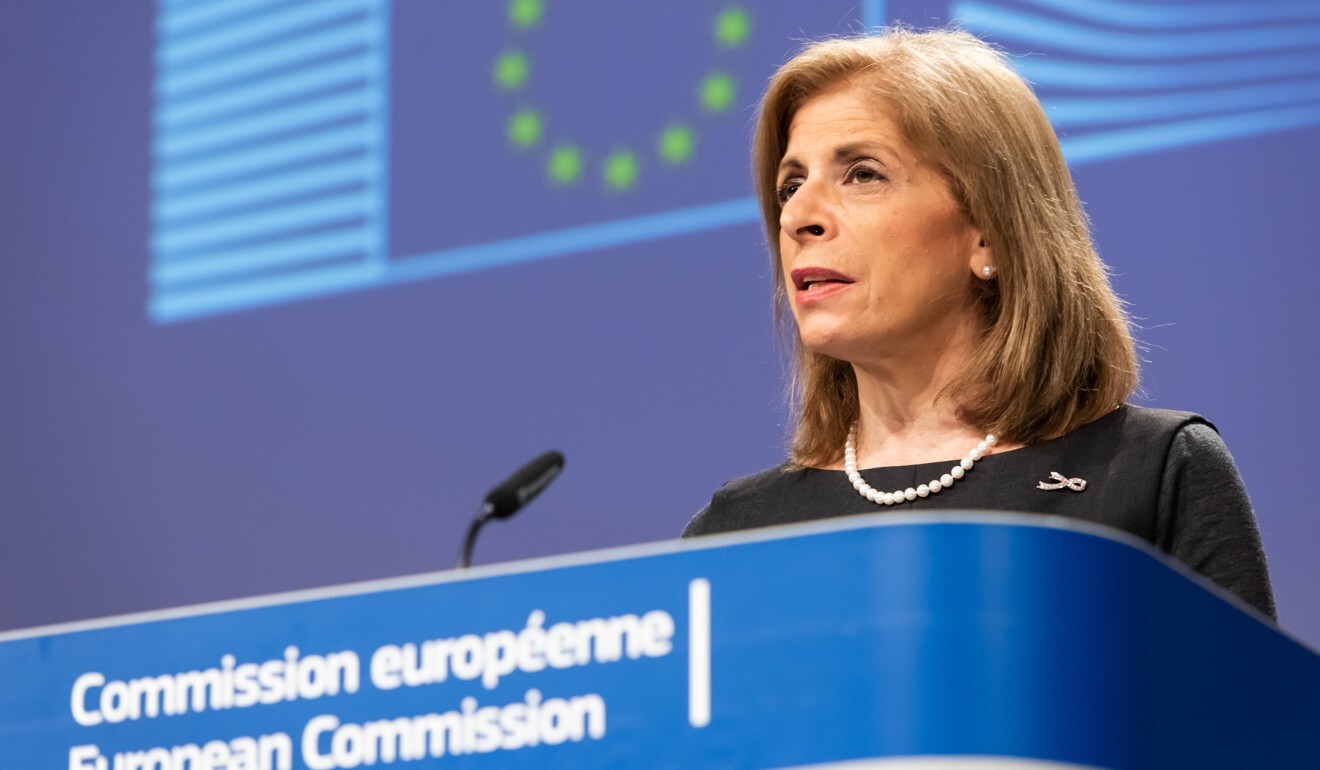
Coronavirus: EU backtracks on vaccine controls for Northern Ireland amid AstraZeneca row
- The European Union had threatened to restrict exports to Northern Ireland by overriding part of the Brexit deal allowing goods over the Irish border
- Brussels has been in a furious dispute with AstraZeneca this week, accusing it of breaching its contract by delaying deliveries to EU governments
British-Swedish firm AstraZeneca has said it can only deliver a fraction of its vaccine doses promised to the EU and Britain because of production problems, but both sides are demanding their pledges are met.
The EU threatened to restrict vaccine exports to Northern Ireland by overriding part of the Brexit deal with Britain that allowed the free flow of goods over the Irish border, but backed down after British Prime Minister Boris Johnson voiced “grave concerns”.
Why vaccine inequality threatens the world’s recovery
The European Commission will “ensure that the Ireland/Northern Ireland Protocol is unaffected”, the EU commissioner said in a statement late on Friday.
That came after the EU released a redacted version of its contract with AstraZeneca, while announcing a mechanism that could allow it to deny the export of vaccines made on European soil.
The AstraZeneca vaccine on Friday became the third to get EU approval after Pfizer/BioNTech and Moderna, but it came under the shadow of the bitter diplomatic row.
“I expect the company (AstraZeneca) to deliver the 400 million doses as agreed,” tweeted European Commission chief Ursula von der Leyen, as she announced the authorisation.
The supply issue is a huge blow to Europe’s already stumbling vaccine roll-out.

“We paid these companies to increase production and now we expect them to deliver,” EU Commission vice-president Valdis Dombrovskis told reporters earlier. “The aim is to provide us immediately with full transparency … And if needed, it also will provide us with a tool to ensure vaccine deliveries.”
The scheme to monitor and in some cases bar exports of vaccines produced in EU factories was to come into effect on Saturday and continue until at least the end of March.
Most non-EU countries in and around Europe, such as Switzerland, those in the Balkans or micro-states like Monaco, are exempted from the measure. But Britain, which last year left the EU amid much acrimony, is not.
Health Commissioner Stella Kyriakides insisted: “We are not protecting ourselves against any specific country. And we’re not in competition or in a race against any country.”
The EU-Britain tussle has highlighted the impact of shortages on ambitious mass vaccination programmes, even on wealthy nations, and fears are growing that the developed world is hogging doses, leaving poorer nations behind.
World Health Organization chief Tedros Adhanom Ghebreyesus warned on Friday against “vaccine nationalism”, saying there was a “real danger that the very tools that could help to end the pandemic – vaccines – may exacerbate” global inequality.
Parts of Africa and Asia have only just started securing and rolling out vaccinations.
Coronavirus: Hungary is first EU country to approve China’s Sinopharm vaccine
The global scramble for shots comes as more troubling data emerges on new variants of the coronavirus, which is known to have infected more than 101 million people worldwide. Variants first detected in Britain, Brazil and South Africa are believed to be more contagious.
Scientists are concerned that the South African variant may elude some vaccines, a potential stumbling block in the global effort to defeat Covid-19 through mass inoculation.
New data on Thursday and Friday showed average effectiveness of 89 and 66 per cent for shots from Novavax and Johnson & Johnson.
But while Novavax’s jab was highly effective against the British variant, both were less effective against the South African strain. Pfizer and Moderna have said their vaccines are effective against the variants.

.png?itok=arIb17P0)